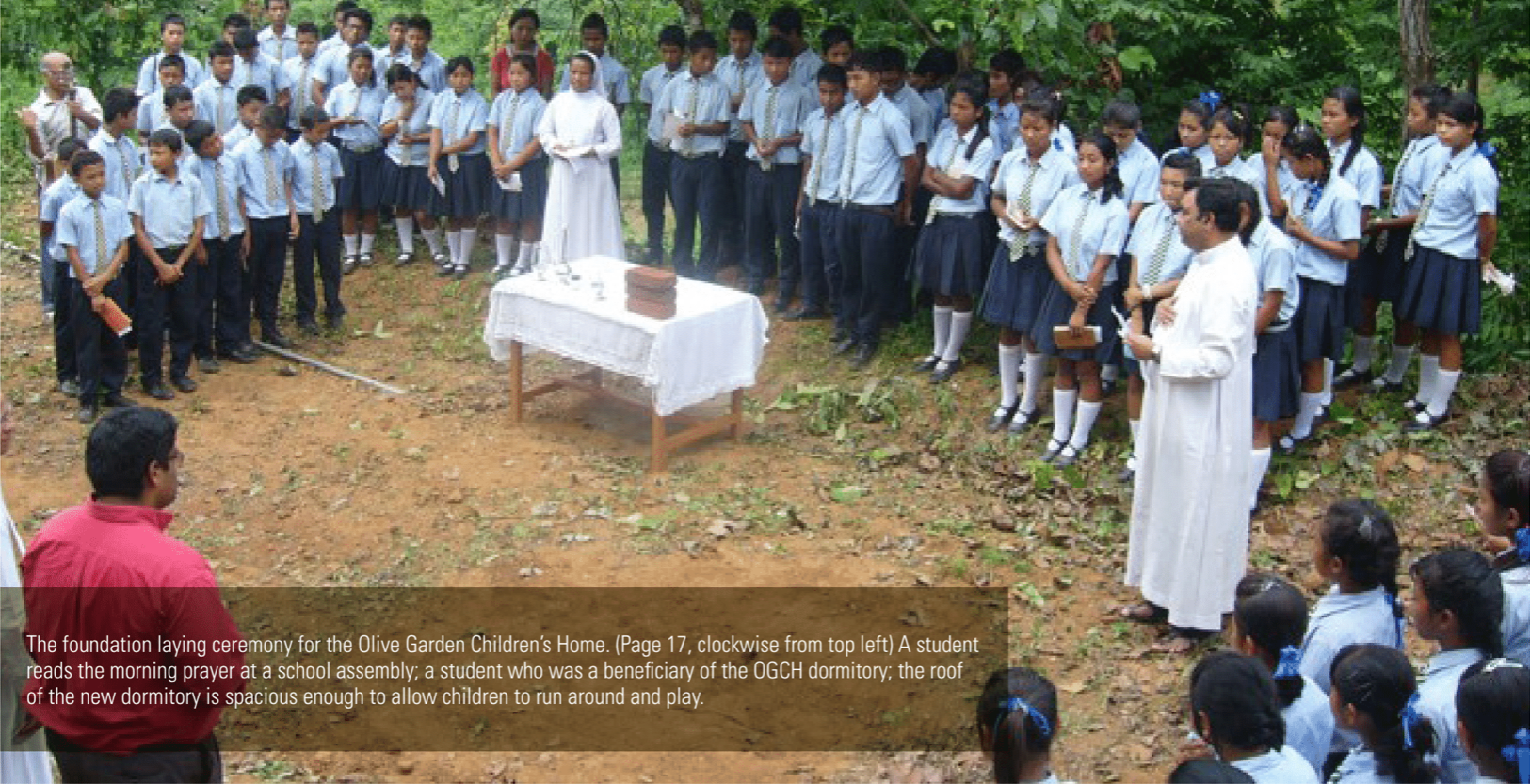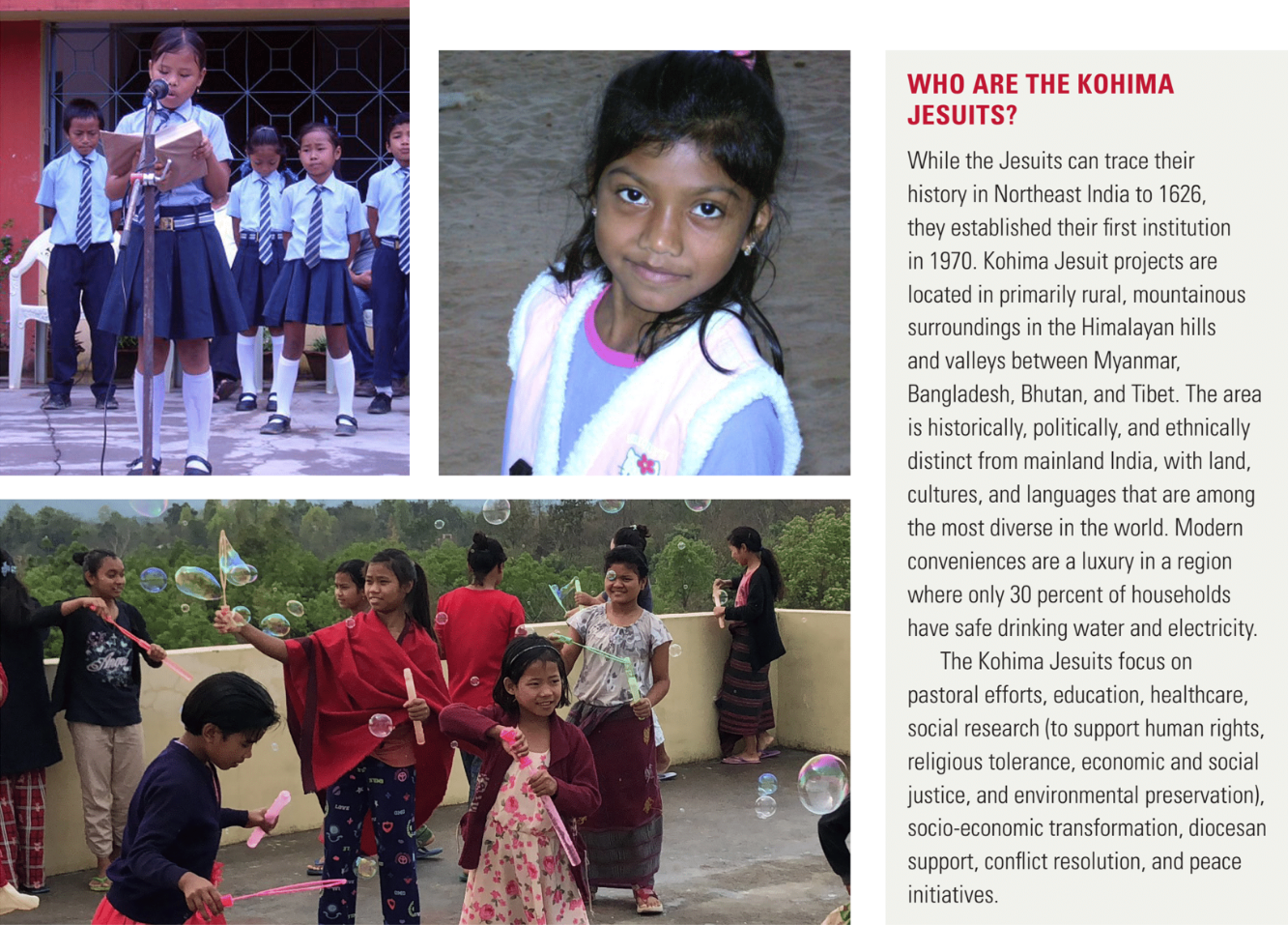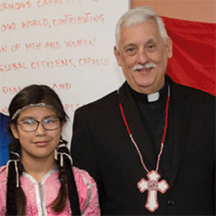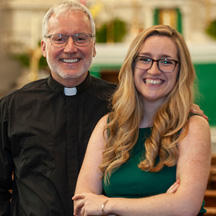Family Addresses critical need for children in Northeast India
By Amy Korpi, staff writer
Olivia Pinto couldn’t sleep.
“It was about eight years ago,” she recalls. “An inner voice kept waking me up in the middle of the night telling me I had to do something for the greater good. Eventually, my husband Alan and I asked my cousin for help. We told him we had saved some money and wanted to donate it for a fruitful purpose. But we didn’t know how to begin.”
Olivia’s cousin—Fr. Julian Fernandes, SJ, a Jesuit in the Kohima region of Northeast India—shared his province’s desire to construct a boarding home for children attending a Jesuit-sponsored school in Meghalaya (on the Bangladesh border). The Jesuits had the land, but not the resources to build.
That was the beginning of Olive Garden Children’s Home (OGCH).

A Family Affair
Olivia, a self-employed CPA, and Alan, a retired engineer, grew up in India and migrated to the United States in the 1970s. Today they live near Houston.
“They are great examples of the American dream,” says their son David. “Mom and Dad started with little, but they worked hard and were careful with their money. My brother Daniel and I never went without, but we didn’t live extravagantly either.”
The hard work and diligent saving paid off, creating a nest egg that led the couple to consider answering Fr. Fernandes’ request through their estate plan.
But their sons had a different idea. Olivia explains, “They asked, ‘Why wait until you die? Do it while you’re alive, so you can see it and know it.’”

Clockwise from top left: A student reads the morning prayer at a school assembly; A student who was a beneficiary of the OGCH dormitory; The roof of the new dormitory is spacious enough to allow children to run around and play.
“I wanted them to be able to visit it during construction so it could be real and tangible for them,” recalls Daniel, who had previously spent time in Northeast India during a service learning experience which included four months at the Jesuits’ Eden Gardens Children’s Home.
“To describe it as life-changing is an understatement,” he says. “I was moved by so much. For example, during the offertory at Mass, families would bring whatever they could, like fruit from trees they’d planted for their family’s table. Given in the spirit of helping others, it was the true embodiment of Christian teachings and charity.”
“After talking it through—along with other options for use of the money—we decided God had called us to do this,” says Alan. “We ultimately said, ‘Let’s build a house.’”
Fighting with God
The road was not smooth though. Setbacks included the land being on a fault line (requiring a deeper foundation—and more money—than originally planned) and personal hardships (two job layoffs).
“In the beginning, we second-guessed our decision a few times. We were fighting with God,” Olivia says with a laugh. “God won.”
Within five years, OGCH was built. And when the family attended the home’s opening in 2015, Olivia says, “We saw the need firsthand. There is great poverty. But we also saw so much excitement. And we have since learned how disciplined the children are with their studies; how the older kids take care of the younger ones; and how their families and people from their villages are involved in making the school self-sufficient by planting fruit trees and vegetables, fixing things, cleaning, and doing yardwork.”
Ongoing Commitment
David, an emergency room physician, continues to support the project financially and by traveling to the region annually to provide classroom clinics in an area rife with malaria and other medical concerns.
“While I support other great organizations, this is my favorite,” he says. “It’s important to our family. And we know the faces on the other end of the checks; the work the Jesuits are doing in Northeast India is nothing short of amazing. Plus, we know how much of a difference we can make.”
Daniel adds, “During construction, I visited a family living deep in the jungle who had lost five of eight children to malaria. Their daughter was only nine or ten at the time, and she had to walk almost four hours to school—so they were overjoyed that she could stay at OGCH upon its completion. I’m proud of my parents’ decision to help these families, but it’s more incredible to see the difference they are making in our lives 10,000 miles away. This project is something my wife, Hemali,and future children will take part in and gain inspiration from for many years to come.”

“Eventually, we will have 90 children who will have a safe bed to sleep in and a beautiful house they can call home,” she says. “But while we knew we could build it, we also knew we could not sustain it indefinitely. That’s why the Jesuits are such an important part of this. In addition to ensuring the children will thrive during their school years, they will work to ensure they thrive as they grow older. The girls particularly—who are often repressed in the local culture—need support to go to college or engage in a trade. We pray these children will have a future in the deep hills of Meghalaya long after our work on Earth is complete.”
Return to the Jesuits Magazine Fall/Winter 2018 Magazine Index

